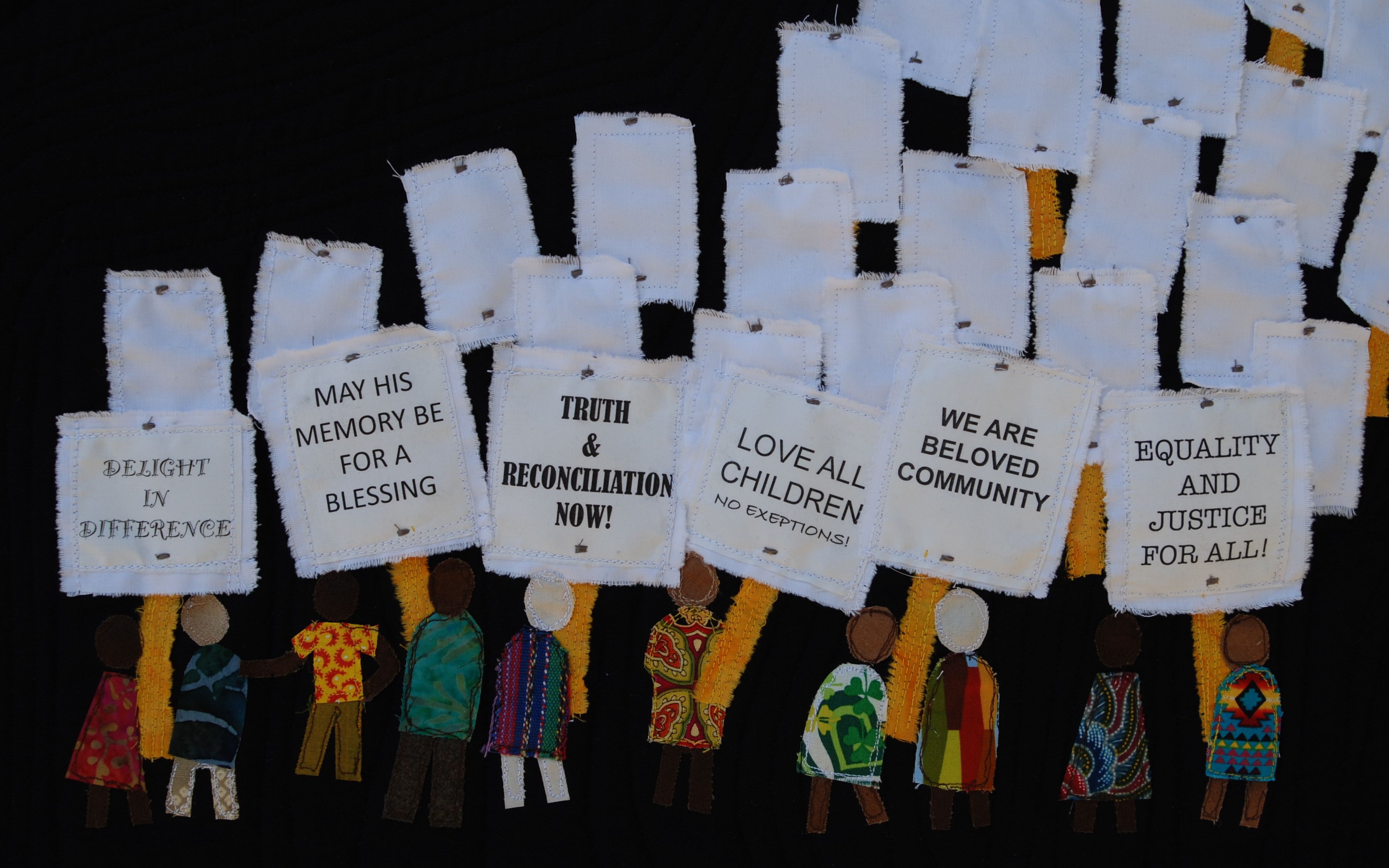When we say "May His Memory Be a Blessing," we are expressing our deepest respect and admiration for someone who has left an indelible mark on our lives. This phrase, commonly used in Jewish tradition, serves as a powerful reminder of the impact that individuals can have on the world, even after they are gone.
It is a phrase steeped in meaning and reverence, reminding us to celebrate the lives of those who have shaped our world. As we explore this concept further, we will uncover its origins, significance, and how it continues to inspire generations.
Through this article, we will delve into the importance of honoring memories and how the phrase "May His Memory Be a Blessing" resonates deeply with those who seek to keep the legacies of loved ones alive.
Read also:%D8%B3%D9%83%D8%B3 %D8%AA%D9%88%D9%8A%D8%AA%D8%B1 %D8%AE%D9%84%D9%8A%D8%AC%D9%8A%D8%A7%D8%AA
Table of Contents
- The Origin of "May His Memory Be a Blessing"
- Understanding the Meaning
- Cultural and Religious Traditions
- The Importance of Memory
- Practices to Honor Memories
- Psychological Benefits
- Historical Context
- Celebrating Life Through Memory
- Modern Interpretations
- Conclusion
The Origin of "May His Memory Be a Blessing"
The phrase "May His Memory Be a Blessing" has its roots in Jewish tradition, where it is often used to honor individuals who have passed away. Known as "Zichrono Livracha" in Hebrew, it reflects a deep respect for the deceased and their contributions to the community. This tradition emphasizes the importance of remembering the good deeds and virtues of those who have left us.
Historically, Jewish culture places great emphasis on honoring ancestors and preserving their legacies. This phrase serves as a way to acknowledge the lasting impact of a person’s life, ensuring that their memory remains cherished and respected.
Historical Usage
While the phrase is most commonly associated with Jewish customs, its essence transcends religious boundaries. It speaks to the universal human need to remember and honor those who have touched our lives. By understanding its origins, we gain a deeper appreciation for the cultural significance of memory and legacy.
Understanding the Meaning
At its core, "May His Memory Be a Blessing" is more than just a phrase; it is a declaration of gratitude and love. It acknowledges the positive impact that someone has had on the lives of others. Whether through acts of kindness, wisdom, or simply being a source of inspiration, the memory of such individuals becomes a source of strength and comfort for those left behind.
This phrase invites us to reflect on the lives of those we have lost, encouraging us to focus on the positive aspects of their existence. It serves as a reminder that even in death, their influence can continue to shape and inspire future generations.
Read also:98 Tang Exploring The Legacy And Cultural Impact Of A Timeless Brand
Key Elements of the Phrase
- Recognition of the deceased’s virtues
- Expression of gratitude for their impact
- Celebration of their contributions to the community
Cultural and Religious Traditions
While the phrase originates from Jewish tradition, similar expressions exist in various cultures and religions. Many societies have developed unique ways to honor the memories of their departed loved ones. These traditions often involve rituals, ceremonies, and practices that ensure the deceased are remembered with respect and gratitude.
In Christianity, for example, All Souls' Day is observed to pray for the souls of the departed. In Hinduism, Shraddha ceremonies are performed to pay homage to ancestors. These practices reflect a universal desire to maintain a connection with those who have passed on.
Comparison Across Cultures
By exploring these diverse traditions, we can appreciate the common thread that binds humanity in its approach to honoring memory. Each culture offers its own unique perspective on how to celebrate the lives of those who have shaped our world.
The Importance of Memory
Memory plays a crucial role in shaping our identities and communities. It connects us to our past, provides context for our present, and offers guidance for the future. When we honor the memories of those who have passed, we affirm the value of their lives and the lessons they have taught us.
Through acts of remembrance, we create a sense of continuity that strengthens our bonds with one another. This collective memory becomes a source of resilience, helping us navigate the challenges of life with greater understanding and compassion.
Psychological Impact
Research has shown that remembering and honoring loved ones can have profound psychological benefits. It helps individuals process grief, find meaning in loss, and develop a sense of purpose. By focusing on the positive aspects of a person’s life, we can transform sorrow into inspiration.
Practices to Honor Memories
There are countless ways to honor the memories of those we cherish. From simple acts of remembrance to elaborate ceremonies, these practices allow us to keep their legacies alive. Below are some suggestions for honoring memories:
- Creating memorials or dedications
- Sharing stories and memories with others
- Participating in community events or charitable activities in their name
- Preserving photographs, letters, and other mementos
These actions not only celebrate the lives of the departed but also provide comfort and healing for those who remain.
Personalized Approaches
Each individual may find their own unique way to honor a loved one’s memory. Whether through art, music, or acts of service, the key is to find a method that resonates personally and authentically.
Psychological Benefits
Honoring the memory of someone we love can have significant psychological benefits. It allows us to process our emotions, find closure, and build resilience. Studies have shown that engaging in acts of remembrance can reduce feelings of isolation and promote a sense of connection.
By focusing on the positive aspects of a person’s life, we can shift our perspective from loss to gratitude. This shift can lead to increased emotional well-being and a deeper appreciation for life itself.
Therapeutic Value
Therapists often encourage clients to engage in memory-based practices as part of their healing journey. These activities can help individuals work through grief and develop a healthier relationship with their emotions.
Historical Context
The concept of honoring memory has a rich historical context that spans centuries and cultures. From ancient civilizations to modern societies, the act of remembering has been a cornerstone of human existence. Historical records reveal numerous examples of how communities have come together to celebrate the lives of their departed members.
By examining these historical practices, we gain insight into the enduring importance of memory and legacy. These traditions remind us of the power of human connection and the lasting impact of individual lives.
Evolution of Traditions
Over time, these practices have evolved to reflect changing societal values and beliefs. Yet, the core principles of remembrance and respect remain constant, underscoring the universal nature of this human experience.
Celebrating Life Through Memory
While the phrase "May His Memory Be a Blessing" acknowledges loss, it also celebrates life. It reminds us to focus on the joy and inspiration that someone has brought into our lives. By honoring their memory, we ensure that their legacy continues to inspire and influence future generations.
Celebrating life through memory can take many forms, from organizing commemorative events to creating lasting tributes. These efforts not only honor the deceased but also strengthen the bonds between those who remain.
Modern Tributes
In today’s world, technology offers new ways to celebrate memory. Digital archives, online memorials, and social media platforms provide innovative tools for preserving and sharing stories of loved ones. These resources enable us to connect with others who share our memories, creating a global community of remembrance.
Modern Interpretations
As society continues to evolve, so too do the ways in which we honor memory. Modern interpretations of "May His Memory Be a Blessing" reflect the diverse and dynamic nature of contemporary culture. From virtual memorials to artistic expressions, these interpretations allow individuals to express their grief and gratitude in meaningful ways.
By embracing these new approaches, we ensure that the essence of the phrase remains relevant and impactful for future generations.
Global Perspectives
As the world becomes increasingly interconnected, the concept of honoring memory transcends cultural and geographical boundaries. People from all walks of life are finding common ground in their shared experiences of loss and remembrance.
Conclusion
In conclusion, the phrase "May His Memory Be a Blessing" encapsulates the profound importance of honoring the memories of those we love. It serves as a reminder of the lasting impact that individuals can have on the world, even after they are gone. Through acts of remembrance, we celebrate their lives, preserve their legacies, and strengthen the bonds that connect us.
We invite you to reflect on the lives of those who have touched your own and consider how you might honor their memories. Whether through traditional practices or modern interpretations, the act of remembrance is a powerful way to keep their legacies alive.
Feel free to share your thoughts and experiences in the comments below. Your stories and reflections can inspire others and contribute to a growing community of remembrance and gratitude.


